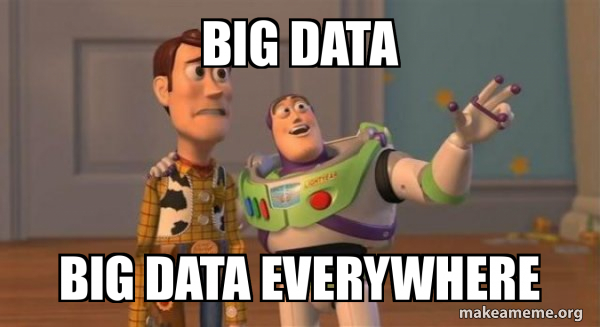Has Facebook brought “The Truman Show” to the 21st century?

If we were to re-watch the 1998 movie “The Truman Show”, we would find many similarities with the world we live in today. Perhaps the most significant one is profiling people/users, surveilling them and collecting their data for various purposes. Today big tech companies like Facebook gather our data in many different ways – search engines, social media (targeted ads), health data from fitness apps or watches and many more. Facebook, Google, Twitter, Instagram and all other Social Media platforms have an exponential amount of users’ data that they use for commercial purposes. According to Hootsuite, as of 2021, Facebook has 2.74 billion monthly active users. Hence, the colossal amount of data. We do not even control what we see on our Facebook timeline because algorithms curate it for us – a process that many people are unaware of.
In their article “Critical Questions for Big Data – Provocations for a cultural, technological and scholarly phenomenon (2012)”, Danah Boyd and Kate Crawford challenge scholars and readers with six provocations about Big Data with the intent of starting conversations around the subject in the 21st century. The authors raise a couple of important issues about Big Data. For example, that Big Data is changing the object of knowledge, that bigger data are not always better data, that “limited access to Big Data creates new digital divides” and about the ethics of the accessible data. Indeed, the questions, problems and ethical concerns about big data have occupied the minds of computer scientists, digital media scholars, researchers and users in recent years.
The article points out that marketers, for example, use big data for targeted advertising or “bankers use it to read the market”. There is certainly nothing wrong with that until one raises the question about ethics. There is nothing ethical about collecting people’s data and using it for political purposes.
I would like to highlight one of the provocations the authors raise in their article. Namely, that “just because it is accessible does not make it ethical”. Boyd and Crawford give an example of students whose data was used without their knowledge for research purposes. This case is not much different from what would happen a few years later with the Cambridge Analytica scandal in which exactly Facebook was involved. Of course, the outcomes of both cases were different as well as the magnitude of the damage. However, they do have one thing in common. And that is the unethical collection of users’ data.
The EU already has a law that protects users data. Meaning that every company that has or is using personal information is liable for it. Failure to comply with this law results in fines. Many criticize Facebook for profiting off their users’ data and selling personal information about their lives to third parties. This goes beyond the information we share voluntarily.

Facebook and Social Media as a whole have occupied our lives on almost all levels. We all know Facebook as a tool that connects us with our loved ones, friends and people we have not been in contact with. Although no one can deny this important character trait of Facebook, we can also not look away from the big scandals that Facebook has been involved in. Edward Snowden himself states that Facebook is like a surveillance company disguised as a social network.
The authors wrote the article in 2012 and state: “The era of Big Data is underway”. Nine years after the publication, we can certainly say that it is here. Facebook is one of the most prominent examples of data manipulation and misuse. The Company was involved in the Cambridge Analytica Scandal in 2018 when it was revealed that data from 87 million Facebook profiles were used to target and manipulate people for political purposes.
In the 21st century, data is one of the most important currencies. Many of us are aware of the dangers of our personal information and data being used with malicious intent and are thus vigilant with sharing personal information online. Some are adamant about not using their credit cards for shopping, let alone creating a Facebook page. It has even come to the point where computer scientists like Jaron Lanier advocate for people to delete their social media accounts.
Many academics have touched upon the subject of ethics while conducting research. In “The SAGE Handbook of Social Media Research Methods” Kelsey Beninger asks the important question: But what about the millions of individuals who use these sites – what do they think about their posts, ‘likes’ and statuses being used for research purposes? Another logical question to ask would be: Where should we draw the line? According to Boyd and Crawford, “Researchers must keep asking themselves – and their colleagues – about the ethics of their data collection, analysis and publication.”
Beninger gives an example with a research conducted in 2014 of “users of social media with varying levels of use”. One conclusion was that users did not feel comfortable with their personal data being so easy accessible to third parties. Unsurprisingly, many of the participants were not aware of who exactly owns their data.
Big Data is one of the biggest problems of the 21st century. Tech Companies create these tools to get our attention and to get us to spend more time on the platform. There are even institutions like “The Persuasive Technology Lab” that teach future engineers how to get people’s attention and how to orchestrate their lives. Many people do not know these practices exist, which makes having this conversation even more important. There are already many documentaries, which address these problems like “The Social Dilemma” or “The Great Hack”.
At the end of the movie, Truman realizes that he is being watched and manipulated and breaks free. We don’t have to get rid of Facebook and the other tools, which undoubtedly have contributed to people’s lives. There need to be stricter regulations on collecting data from users and sanctions on data misuse.
Works cited:
Benniger, Kelsey – Social Media Users’ Views on the Ethics of Social Media Research (p. 57-73), The SAGE Handbook of Social Media Research Methods, SAGE Reference, 2017
Boyd, Danah & Crawford, Kate – “Critical Questions for Big Data – Provocations for a cultural, technological and scholarly phenomenon (2012)”
Franks, Bill – Is Big Data At Risk Of Unleashing Big Brother, 2012, https://iianalytics.com/community/blog/is-big-data-at-risk-of-unleashing-big-brother
Harris, Tristan et al. – The Social Dilemma, 2020, Netflix
Marr, Bernard, How Facebook Is Using Big Data: The Good, The Bad and The Ugly, LinkedIn, https://www.linkedin.com/pulse/20140716060957-64875646-facebook-and-big-data-no-big-brother/
The New York Times, Jaron Lanier Fixes the Internet | NYT Opinion, 2019, https://www.youtube.com/watch?v=Np5ri-KktNs
Thulara N. Hewage, Malka N. Halgamuge, Ali Syed, and Gullu Ekici – Review: Big Data Techniques of Google, Amazon, Facebook and Twitter Trott, Tom – How ‘The Truman Show’ Warned Us About Social Media (Before It Was Invented), 2018, https://medium.com/framerated/how-the-truman-show-warned-us-about-social-media-before-it-was-invented-f19819f1c87a